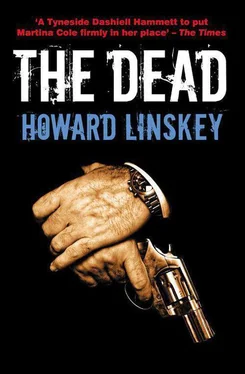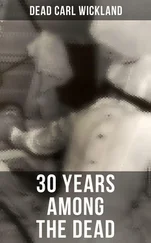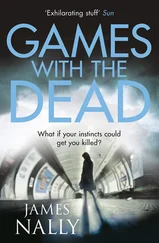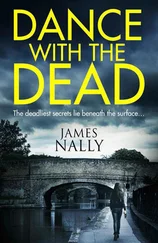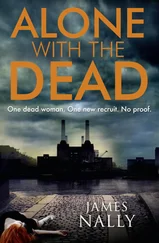Howard Linskey - The Dead
Здесь есть возможность читать онлайн «Howard Linskey - The Dead» весь текст электронной книги совершенно бесплатно (целиком полную версию без сокращений). В некоторых случаях можно слушать аудио, скачать через торрент в формате fb2 и присутствует краткое содержание. Год выпуска: 2013, ISBN: 2013, Издательство: No Exit Press, Жанр: Криминальный детектив, на английском языке. Описание произведения, (предисловие) а так же отзывы посетителей доступны на портале библиотеки ЛибКат.
- Название:The Dead
- Автор:
- Издательство:No Exit Press
- Жанр:
- Год:2013
- ISBN:9781842439623
- Рейтинг книги:5 / 5. Голосов: 1
-
Избранное:Добавить в избранное
- Отзывы:
-
Ваша оценка:
- 100
- 1
- 2
- 3
- 4
- 5
The Dead: краткое содержание, описание и аннотация
Предлагаем к чтению аннотацию, описание, краткое содержание или предисловие (зависит от того, что написал сам автор книги «The Dead»). Если вы не нашли необходимую информацию о книге — напишите в комментариях, мы постараемся отыскать её.
The Dead — читать онлайн бесплатно полную книгу (весь текст) целиком
Ниже представлен текст книги, разбитый по страницам. Система сохранения места последней прочитанной страницы, позволяет с удобством читать онлайн бесплатно книгу «The Dead», без необходимости каждый раз заново искать на чём Вы остановились. Поставьте закладку, и сможете в любой момент перейти на страницу, на которой закончили чтение.
Интервал:
Закладка:
Of course, the population weren’t too happy about a handful of individuals creaming off the nation’s wealth and it is said that when President Putin first came to power he made a deal with these oligarchs. Stay out of politics, unless you are on my side, and keep your wealth, or face the consequences. Men like Abramovich toed the line, bought yachts and football clubs and lived happily ever after. Others like Berezovsky and Khodorkovsky didn’t and were soon exiled or imprisoned. Perhaps the most outspoken oligarch of them all however, was Yaroslav Vasnetsov, earning him the label of Russia’s public enemy number one, but not before he managed to flee the country, taking most of his fortune with him. He set up home in England and soon bought his way into British society, donating entire collections to art galleries, a number of Oxbridge bursaries and even a hospital wing. I mean, how could we deport the man after all that? Vasnetsov’s presence in this country has affronted Russia to such an extent that he is now almost personally responsible for a freezing of relationships between the two countries to a near cold-war level. What has all this got to do with me? I had no idea, but assumed I was about to find out.
‘Before your meeting with Mr Vasnetsov, there are some documents he would like you to familiarise yourself with.’
The young man in the sharp suit took us into the library and motioned towards a large table with papers laid out on it. Palmer walked over to them while I awaited an explanation. ‘I will leave you to examine the information we’ve provided before Mr Vasnetsov joins you,’ was all I got.
Palmer was already looking at the material. I couldn’t see what it was, but I could tell from the look on his face that he was taking it seriously.
‘What is it?’ I asked and when he didn’t immediately answer me I walked over and joined him. On the table were a series of folders containing papers but I ignored them and instead scrutinised the dozen ten-by-eight black and white surveillance photos thoughtfully arranged in a line for us to view. They were of an extremely high quality, considering they had been taken without any of us knowing. There was a very clear one of me with the Turk, sitting opposite each other in one of his cafes that we used as a discreet meeting place. The next one showed us leaving the building with Palmer and one of the Turk’s bodyguards following behind. The cars we used had been photographed too, but then there was more damning material, including shots of the lorries we used to transport the heroin.
I turned the page and found notes from a surveillance report, listing the makes and registration numbers of some of those trucks and the route they took into the Balkans and beyond. Some were tracked heading west to Amsterdam, where their contents would be off-loaded into freight containers. These were loaded onto ships that crossed the North Sea and were off-loaded at Hull. Others went east, into Russia via a little Ukrainian border post east of Kharkov; a territory Remzi had been ruthlessly fighting his way into for more than a decade.
The next series of photographs included nice close-ups of people who helped us get our drugs out of Turkey and across Europe. Some of our key men were photographed near the lorries and the tankers we used and in incriminating shots with officials we bribed to turn a blind eye. I was in enough of the photos to prove that I had a lot of very dodgy friends indeed. This alone would have been pretty damning, but there was more. I was used to dealing with Amrein’s organisation, so I knew how this kind of operation could work but even I was astonished at the level of detail Vasnetsov had amassed on our drug line. He had managed to chart almost every inch of it, presumably by mounting an enormous and highly-sophisticated surveillance operation, the type that the CIA would struggle to fund, on each and every one of us. He had details of our consignments; dates, times, places and estimated yields. I’d say he had us down to almost the last kilo. Palmer and I read this material for a good fifteen minutes and, by the end of it, I realised I was looking at serious prison time. There was enough evidence here to get me a sentence in excess of twenty years in Britain, if this file ever fell into the wrong hands. I was suddenly glad it was Vasnetsov holding it and not the Crown Prosecution Service, but I was worried too, because there could be only one reason for a man like Vasnetsov to invest his time, energy and considerable resources into an operation as thorough as this one. He wanted something from me and that something was going to be big.
‘This surveillance…’ Palmer was shaking his head, ‘I don’t know how we didn’t spot it… unless they used an army of bloody good people, but if they did that, the cost would be…’
‘I don’t think you’re getting it,’ I told him. ‘If this surveillance cost him a couple of million dollars he wouldn’t notice. He could spend one hundred million dollars on the operation, employ dozens of former agents of the FSB, CIA, Mossad and MI5, and it still wouldn’t even put a dent in his fortune. His resources are pretty much inexhaustible and he doesn’t have to account for any of it to a government select committee or the US Congress. There are no rules he has to follow. He’s unaccountable, beholden to no one, except himself. He does what he likes. Do you get it now?’
We both turned when the door opened. The man who walked into the room was instantly familiar. The phalanx of bodyguards were straight out of central casting, an oligarch’s idea of what a minder should look like; absurdly tall, barrel-chested men with shaved heads that proclaimed them as ex-military or FSB, happy to take vast inflations of their state pay to keep the man at their centre breathing.
I recognised two other men from my briefing with Amrein. Evgeny Gorshkov was Vasnetsov’s head of security, a personal bodyguard and rat-catcher who smoked out plots against his boss and dealt with the perpetrators ruthlessly. He was a big man in his forties. The other man I recognised from the photographs Amrein had showed me was Mikhail Datsik, Vasnetsov’s personal banker, who shuffled money around the globe at the behest of his boss. Datsik was a small, tubby man of mixed ancestry and dual citizenship, his American mother having married a Russian emigre. It was said that Datsik had managed to double Vasnetsov’s vast fortune in just ten years.
Vasnetsov wore a simple, plain white tailored shirt that probably cost more than a working man takes home in a month, black trousers and patent leather shoes that had most likely been custom made in Milan. He wasn’t a particularly big man, just average looking; average height, average build, but there was nothing average about his life. He eyed me like I was something trivial that was in his way, and snapped something in Russian to an aide who immediately dipped his head and left the room. He seemed irritated that he had been forced to emerge from the shadows to talk to me.
‘You know who I am.’
It wasn’t a question.
‘Of course.’
‘Then you will take what I have to say seriously.’
‘Obviously.’ The man could buy and sell me, Amrein and everybody else we’d ever met, in an afternoon. Compared to him we were yachts bobbing on the ocean and he was the QE2.
‘Good. Because, if you listen, you will make much money and if you do not…’ he clicked his fingers, ‘all gone.’
He walked up to our table but ignored the surveillance report. Perhaps he felt that it spoke for itself. He put a newspaper down in front of me and tapped it with a finger. ‘I am close to a breakthrough and must leave tonight,’ then he became quite animated, ‘you have heard of my latest business venture?’
‘African oil,’ there had been a feature on it in the newspaper he was holding and a small piece on the TV news.
Читать дальшеИнтервал:
Закладка:
Похожие книги на «The Dead»
Представляем Вашему вниманию похожие книги на «The Dead» списком для выбора. Мы отобрали схожую по названию и смыслу литературу в надежде предоставить читателям больше вариантов отыскать новые, интересные, ещё непрочитанные произведения.
Обсуждение, отзывы о книге «The Dead» и просто собственные мнения читателей. Оставьте ваши комментарии, напишите, что Вы думаете о произведении, его смысле или главных героях. Укажите что конкретно понравилось, а что нет, и почему Вы так считаете.
